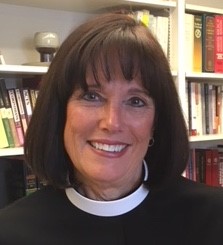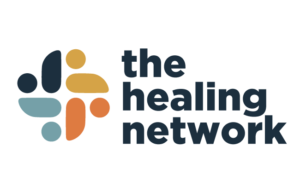

The Rev. Molly Doreza is an ordained Lutheran minister in the Evangelical Lutheran Church of America and Chair of The Healing Network. She is currently serving as Interim Pastor of Prince of Peace Lutheran Church in Milwaukee, WI.
Early, on a rainy summer morning, I got a call no mother should ever receive. My daughter was shrieking into the phone: “Justin’s dead!” After nearly six years of blessed sobriety, my son had relapsed and died of a fentanyl overdose. He left two beautiful young children, a good job, a new house, and a bright future in ruins.
When I returned home from his funeral, in abject grief, I didn’t know how to talk about it to the congregation I was serving. And – besides making me a lovely pray shawl – they didn’t know how to talk about it either.
In the months following my son’s death, I began to wonder what it would look like if ministry could be developed around the topic of addiction so that response to tragedies such as mine could be woven into the fabric of its mission, and we could talk about it, openly. I realized that, as a pastor, I’d contributed – unwittingly – to the stigma associated with addiction; I had been only referring folks to treatment and help outside the church, relegating them and their problems out of the protective embrace of their church family. I knew other pastors were doing this as well.
With this in mind, I and a couple of other pastors and people affected by the crisis authored a resolution to our Synod (a geographical grouping of other Lutheran Congregations) which would create a task force to look into how things might change. The resolution passed unanimously, and we got to work.
It is one thing to hold a couple of workshops, but quite another to invite congregations to become engaged and involved in sustainable ministry. People know that there is a growing epidemic of substance use disorders and addiction, even related to their own families. But very few know how to move through the stigma and effectively respond to it – primarily because they lack guidance and the tools needed.
Frankly, we didn’t know where to begin. In what I consider a work of the Spirit, we found the Faith Partners model and Drew Brooks who provided us with incredible support and the coaching needed to develop a strategy to help us move congregational cultures from stigma to awareness – and an opportunity to form authentic ministries around care for people and their families who are suffering from addiction.
The Faith Partners staff have mentored us through the whole process, helping us to cast a vision and clarify our mission. Faith Partners has also helped us with the mundane (but very necessary) tasks, such as grant-writing and forming a job description for our new Area Coordinator. Besides conducting trainings and quarterly meetings, Faith Partners has been an invaluable and on-going support for the task force and our new Area Coordinator.
We have often described our initiative as “a plane being built while in flight,” and in some ways Faith Partners has been our general contractor – overseeing development and bringing us to the point where we can pilot the plane ourselves!
Today, what was once a task force with abstract dreams, has now become “The Healing Network” – which includes a marvelous Area Coordinator, congregational teams, pastors, local treatment and support providers and other organizations who are collaborating in the areas of treatment, recovery support and prevention.
As I look back to that summer morning when my son died, I still feel its horror. I don’t think anyone gets over this kind of tragedy. But what is different is that I no longer feel alone. I know that there are folks in my faith community with whom I can share my experience – and who are able to share theirs with me. And together, we can help each other.
The human heart has great capacity for healing – and can contain both joy and sadness at the same time, without doing injustice to either. Importantly, at the intersection of joy and sadness there is the miracle of hope. Being part of the development of The Healing Network has shown me that hope is born and fostered by the community, which surrounds each heart in love.
